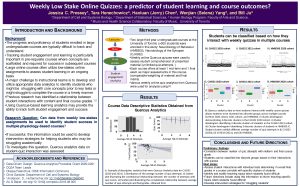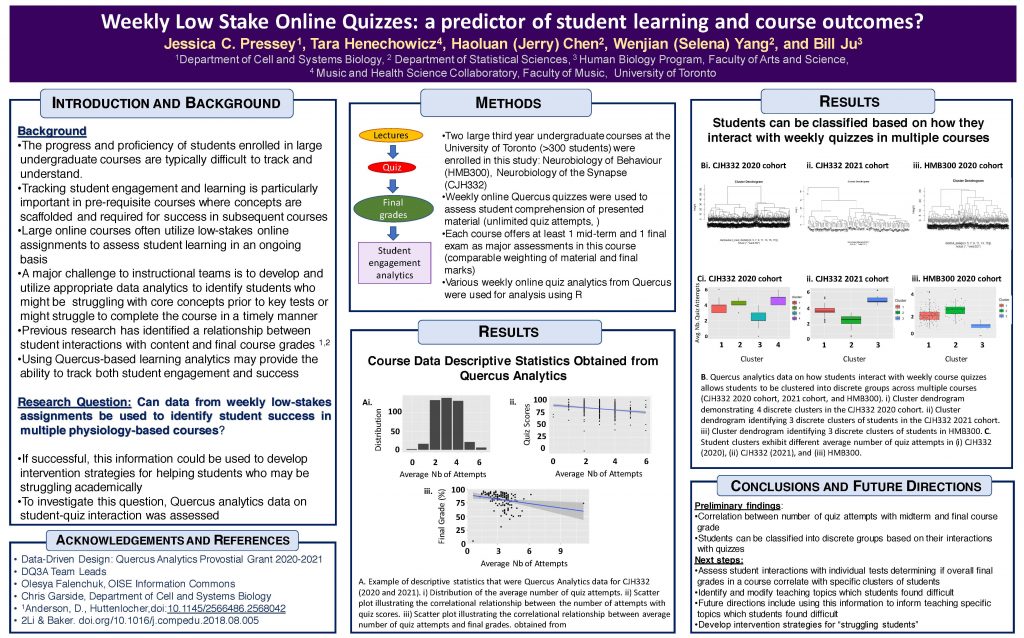William Ju and Jessica Pressey
Course/ProgramCJH332 – Cellular and Molecular Neurobiology of the Synapse |
 Poster and Video Presentation – Teaching and Learning Symposium, May 2021 Poster and Video Presentation – Teaching and Learning Symposium, May 2021 |
Design Context
Cluster analysis of student performance on small stakes assignments to predict testing performance in upper year biology based courses.
Instructional Challenge
Small stake quizzes are often used to assess mastery of core concepts as well as progress through a course. Can analysis of how students interact with small-stake quizzes inform their final performance in a course and possible interventions?
Design Strategy
Various student cohorts in 2 courses (CJH332 and BIO271) were given low stakes weekly quizzes with unlimited attempts. We used cluster analysis to differentiate how students interacted with these quizzes and correlated these data with their performance on tests and final assessments.
Use of Data to Inform Design Iteration and Instruction
Cluster analysis revealed that how students interact with these quizzes correlate with their final outcomes in a course. These data showed that there are 3 clusters of students who interact with these low stake assignments and that intervention may be possible (i.e., for groups that do not seem to engage early, to provide additional time and supports). Future courses and sections will make use of this data to ensure that early identification of these clusters might require earlier interventions.
Next Steps
Can this correlational study be expanded to other courses and other sectoral disciplines with large courses? If successful, how can correlating early engagement/small scale success lead to the development of effective student intervention strategies?
Poster
Presented at the Teaching and Learning Symposium, May 2021.
Click to download poster PDF in a new tab

